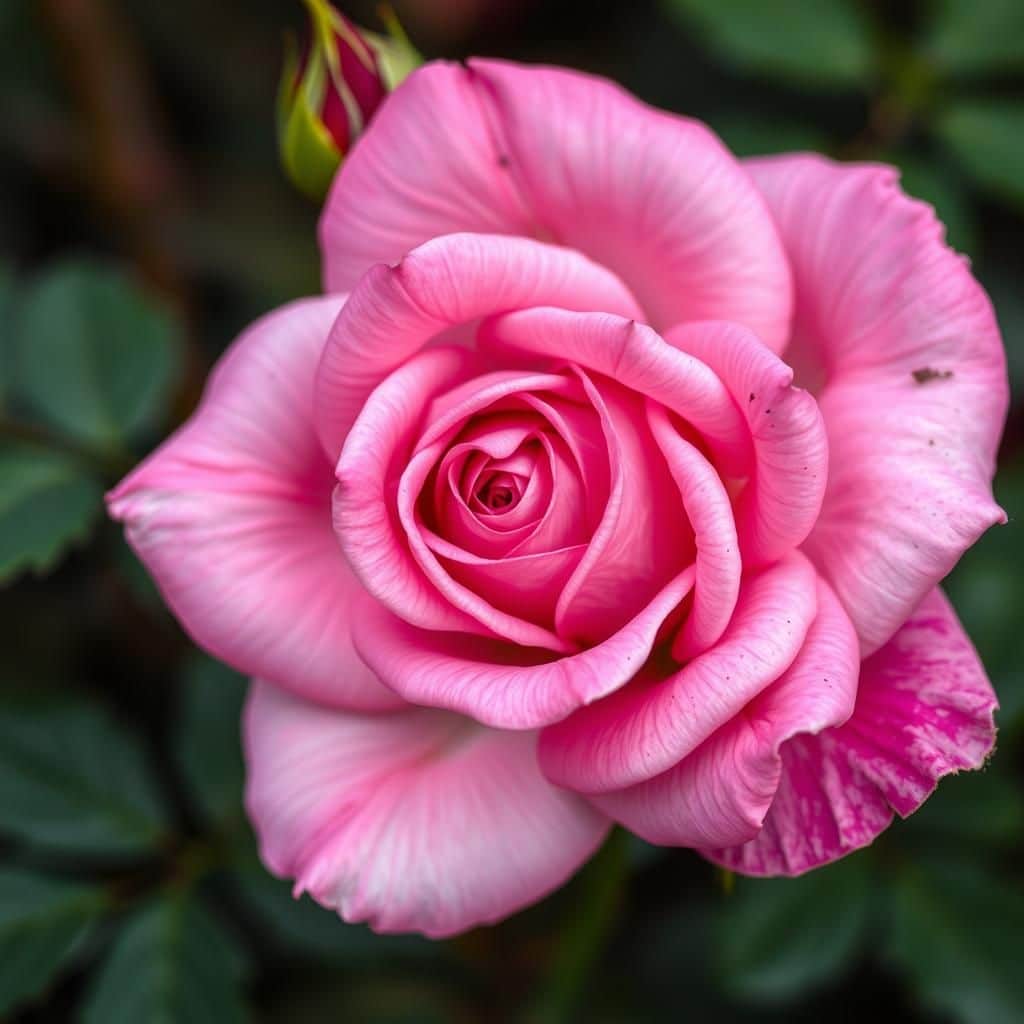Do All Roses Like Coffee Grounds? Discover the Truth Behind This Gardening Myth

Many gardening enthusiasts believe that coffee grounds can benefit all types of roses, leading to the widespread notion that these grounds are a universal fertilizer for this beloved flower. However, this popular myth begs further examination. While coffee grounds can certainly enrich the soil and provide nutrients, the effects can vary depending on the specific type of rose and the overall soil conditions. In this article, we will delve into the truth behind this gardening myth, exploring the science behind coffee grounds and their impact on roses, helping you make informed decisions for your garden.
Do All Roses Like Coffee Grounds?
While coffee grounds can be beneficial for many plants, including roses, not all roses necessarily thrive on them. The primary benefit of coffee grounds lies in their ability to enhance soil's nutrients, particularly nitrogen, potassium, and phosphorus, which are essential for healthy rose growth. However, the effectiveness of coffee grounds also depends on soil pH and the specific variety of rose. Some roses prefer a more acidic environment, which coffee grounds can provide, while others may not respond as well. Therefore, it’s essential to observe the growth and health of your roses after introducing coffee grounds and adjust their use accordingly to ensure optimal results.
Benefits of Coffee Grounds for Roses
Coffee grounds add valuable nutrients to the soil, helping to improve its overall quality. They serve as a natural fertilizer, providing essential nitrogen, which supports leaf growth and photosynthesis. Additionally, using coffee grounds can improve soil drainage and aeration, leading to better root development. The organic matter in coffee grounds can also help retain moisture in the soil, reducing the need for frequent watering, thus creating a more optimal environment for roses to thrive.
How to Use Coffee Grounds on Roses
To effectively use coffee grounds on roses, it is advisable to mix them into the top layer of the soil or add them to your compost pile to decompose before application. Sprinkling a thin layer around the base of the roses can improve the soil quality without overwhelming the plants with excess acidity. It’s best to avoid using too much coffee ground at once, as this can lead to nutrient imbalance or fungal growth. Integrating coffee grounds gradually into your rose care routine allows you to monitor how your roses react and adjust accordingly.
Considerations for Different Rose Varieties
Different varieties of roses have varying needs and tolerances. While some varieties might flourish with the added nutrients from coffee grounds, others may be sensitive to changes in soil pH. Hybrid tea roses, for instance, may benefit more from the additional nitrogen, while older varieties like heirloom roses might not react as positively. Researching the specific needs of the chosen rose variety is crucial before applying coffee grounds to see if it’s suitable for your garden.
See also:
Potential Risks of Using Coffee Grounds
Although coffee grounds are generally safe for most plants, there are potential risks when using them on roses. Excessive use can lead to soil acidity, which may negatively affect certain rose varieties that prefer neutral pH levels. Additionally, too many coffee grounds can create a compact layer that restricts water penetration and oxygen flow to the roots. It is essential to monitor for any adverse effects on your roses after applying coffee grounds and to maintain a balanced approach to usage.
Alternatives to Coffee Grounds for Roses
If you find that coffee grounds are not producing the desired results for your roses, there are many alternatives you can consider. Options such as compost, well-rotted manure, or specialized rose fertilizers can provide necessary nutrients without changing soil pH drastically. Organic mulches like shredded leaves or straw can also enhance soil quality and retain moisture. These alternatives can contribute to a healthy growing environment for roses, catering to their specific needs without the risks associated with coffee grounds.
| Aspect | Benefit | Risk |
|---|---|---|
| Nutrients | Provides nitrogen, potassium, and phosphorus | Possible nutrient imbalance if overused |
| Soil Quality | Improves drainage and aeration | Can compact soil if applied excessively |
| pH Levels | Can make soil more acidic | Harmful to roses that prefer neutral pH |
| Moisture Retention | Helps retain soil moisture | Risk of over-saturation if not monitored |
| Organic Matter | Enhances overall soil composition | May lead to fungal growth if overused |
Understanding the Benefits and Risks of Using Coffee Grounds in Rose Gardening
Using coffee grounds as a fertilizer in rose gardening has become a popular trend, but it is important to understand the science behind this practice. While coffee grounds are rich in nitrogen and can improve soil structure and drainage, not all rose varieties will benefit equally from their use. The acidity of coffee can also alter soil pH, which may not be ideal for certain types of roses, particularly those that thrive in more alkaline conditions. It's crucial to conduct thorough research and perhaps perform a soil test before incorporating coffee grounds into your rose care routine, ensuring that your plants receive the right balance of nutrients they need for optimal health and blooming.
Are Coffee Grounds Acidic or Alkaline?
Coffee grounds are often thought to be acidic, but their actual pH can vary depending on the brewing method and the type of coffee beans used. Fresh, unbrewed coffee grounds generally have a pH around 6.0 to 6.8, making them only slightly acidic. However, after brewing, the pH tends to neutralize closer to a neutral range. This means that while coffee grounds can slightly acidify the soil when used excessively, they may not be the best option for roses that prefer alkaline conditions.
Which Types of Roses Benefit Most from Coffee Grounds?
Not all roses respond positively to coffee grounds; some varieties may benefit more than others. For those roses that thrive in acidic soil, such as Rhododendron or certain types of azaleas, coffee grounds can provide valuable nutrients and help maintain the desired pH. On the other hand, hybrid tea roses and floribundas might not show the same level of benefit, highlighting the importance of understanding your specific rose varieties when deciding whether to incorporate coffee grounds into your gardening practice.
See also:
How to Apply Coffee Grounds Effectively?
To apply coffee grounds effectively, it's best to use them as a complement to other organic materials rather than as a standalone fertilizer. Mixing coffee grounds with compost or combining them with other nitrogen sources can help ensure a balanced nutrient profile. Apply a thin layer of coffee grounds around the base of the plants, being careful not to suffocate the roots. Additionally, mixing them into the soil can help improve aeration and water retention, ensuring that the roses receive both the nutrients they need and optimal growing conditions.
Are There Any Risks Associated with Using Coffee Grounds?
While coffee grounds can provide benefits, there are potential risks to consider. Over-application can lead to excessive nitrogen, which might cause nutrient imbalance and hinder blooming. Moreover, coffee grounds can attract pests if used improperly, especially when not composted. Another concern is that coffee grounds may harbor molds, which can be detrimental to rose health. Thus, moderation and proper application are key to reaping the rewards without harming your plants.
Are There Alternatives to Coffee Grounds for Roses?
If coffee grounds do not suit your gardening needs, there are plenty of alternatives to consider. Manure, worm castings, and balanced fertilizers designed for roses can effectively provide the necessary nutrients without altering soil pH. Additionally, organic compost can help improve soil structure and health, fostering a thriving environment for roses. By exploring different types of organic inputs, gardeners can find the right balance that supports the unique needs of their rose plants while promoting healthy growth and flowering.
Questions from Our Readers
Do all roses benefit from coffee grounds?
Many rose varieties can benefit from coffee grounds due to their nutrient content, particularly nitrogen, which promotes healthy growth. However, it's important to remember that not all roses may react the same way; some may prefer different soil amendments, so it's best to observe your plants' individual needs.
How should I apply coffee grounds to my roses?
To apply coffee grounds effectively, you can sprinkle them around the base of the rose plants, mixing them into the top layer of soil. This method promotes nutrient absorption while preventing any potential buildup that could hurt the plants over time.
See also:
Can too much coffee grounds harm my roses?
Yes, using too many coffee grounds can lead to problems such as soil acidity and potential nutrient imbalances. It's crucial to use them in moderation and monitor your roses for any signs of distress or poor growth.
Are there any alternatives to coffee grounds for feeding roses?
Absolutely, there are several alternatives to coffee grounds for feeding roses, such as compost, well-rotted manure, or water-soluble fertilizers. These options can provide essential nutrients and promote healthy growth without the risks associated with excessive coffee grounds.

If you want to read more articles like Do All Roses Like Coffee Grounds? Discover the Truth Behind This Gardening Myth, we recommend you check out our Roses category.
Leave a Reply